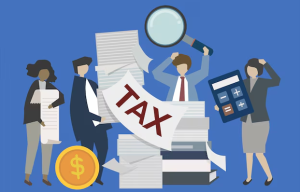Changes in the U.S. tax code can significantly impact small businesses across the country. Understanding these changes is crucial for entrepreneurs to make informed decisions and maintain the financial health of their enterprises.
With the ongoing adjustments to tax laws, small business owners must stay vigilant and proactive in adapting their strategies. These changes can influence everything from deductions and credits to compliance requirements, which can either hinder or enhance a business’s profitability.
By staying informed about the latest tax developments and seeking professional advice when necessary, entrepreneurs can better navigate this complex landscape and leverage potential benefits to drive their growth and sustainability. This blog post explores how recent modifications in taxation regulations affect small business operations, guiding you through both challenges and opportunities.
Understanding the basics of tax code modifications

The U.S. tax code is regularly updated to address economic conditions and policy goals. When the government enacts new tax laws, these can either ease the burden on small businesses or create additional challenges. For instance, changes might involve adjustments to income tax rates, deductions, or credits, all of which can affect cash flow and profitability.
Business owners need to stay informed about these changes to optimize their tax strategies. Whether it’s hiring new employees, investing in equipment, or planning for the future, understanding the basic principles of tax modifications is essential. Without proper knowledge, small businesses might miss out on beneficial tax opportunities or incur unnecessary expenses.
The impact on cash flow
One of the immediate effects of changes in the tax code is on the cash flow of small enterprises. When taxation rates are adjusted, it directly influences the amount of money that businesses need to set aside for taxes. A reduction in tax rates can result in increased available capital, enabling businesses to reinvest in their operations.
Conversely, tax hikes can strain the liquidity of small businesses, forcing them to re-evaluate their financial plans. Business owners must often adapt by cutting costs or finding alternative revenue streams to offset higher tax liabilities. Effective cash flow management becomes increasingly vital during periods of tax change.
Deductions and credits
The availability and structure of deductions and credits can also shift with alterations in tax legislation. These changes can offer significant savings for small businesses if leveraged correctly. For example, deductions for expenses such as office supplies, travel, and employee benefits can reduce taxable income.
On the other hand, the introduction or elimination of certain credits, like those for research and development, can either motivate or dissuade certain business activities. Staying abreast of these changes allows small businesses to maximize their tax benefits, ensuring they utilize every possible advantage to remain competitive.
Strategic planning in response to tax changes
Adapting to changes in the U.S. tax code requires strategic foresight. Small business owners must not only react to new tax laws but also anticipate potential future shifts. Developing a long-term tax strategy is essential for navigating an evolving regulatory landscape.
Crafting such a strategy involves considering various factors, such as potential investments, expansion plans, and human resources. Keeping an eye on legislative trends and consulting with tax professionals can provide a competitive edge, ensuring that businesses are not caught off guard by sudden tax code changes.
Utilizing professional guidance
One of the most effective ways to navigate changes in the tax code is by enlisting the help of tax professionals. Accountants and tax advisors offer valuable expertise, helping businesses understand intricate tax laws and identify opportunities for savings. Professional guidance can be particularly beneficial during periods of significant legislative change.
These experts can assist in implementing tax-efficient practices and avoiding common pitfalls. By leveraging their knowledge, small businesses can ensure compliance, optimize their tax liabilities, and enhance their overall financial health. Engaging professional services may involve costs, but the long-term benefits usually outweigh the expenses.
Long-term tax planning
A proactive approach to tax planning involves looking beyond immediate fiscal years. Long-term planning considers potential changes in business size, market conditions, and tax laws. By developing a robust tax strategy that includes contingency plans, businesses can better prepare for future tax code shifts.
Such planning might involve setting up retirement plans, evaluating entity structures, or investing in tax-advantaged opportunities. By regularly reviewing and adjusting their strategies in light of legislative updates, businesses can maintain resilience and thrive even amid constant tax changes.
